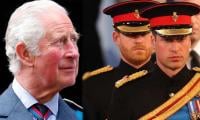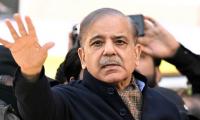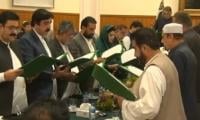PESHAWAR: Speakers at a webinar on Saturday observed that no warmer relations between Pakistan and the US could be seen in near future owing to the conundrum of “stick versus carrot” in Afghanistan under the Taliban.
This was the crux of the international webinar titled “Taliban Regime in International Relations”, which was organised by the Department of International Relations, University of Peshawar.
Major themes of US and Pakistan relations, European perspectives on the Taliban regime, and the characterisation of the Taliban were explored at the webinar. Students from different departments of University of Peshawar participated in the event.
The first international speaker Elizabeth Threlkeld, Director of the South Asian Programme, Stimson Center, Washington DC, shared her viewpoint on the US-Pakistan relations in the aftermath of the Taliban takeover of Afghanistan.
She said that the roadmap towards future relations between the two countries was lined with mutual interest. However, securitisation remains the modus operandi of their respective foreign policies towards one another. The collaboration on evacuation from Afghanistan between the US and Pakistan provided one such case scenario, she added.
Elizabeth Threlkeld said that avoiding destabilisation and eliminating terrorism are the two pillars for the way forward in the US-Pakistan relations where their interests, and security concerns align.
She said that both sides had a difference in approaching these solutions which was the point of divergence of means in a convergence of ends.
The second international speaker, Dr Felipe Pathe Duarte, assistant professor and researcher at the Nova School of Law, Lisbon, presented the European perspective on the Taliban regime.
Presenting both sides of the coin, he shared a pessimist versus an optimist perspective.
He added that Afghanistan’s regime change presented two problems for the European Union - one the impact of the withdrawal on the EU’s strategic autonomy, and the second the social and security pressure on Europe.
Dr Felipe said the latter may be rhetorically explored with political consequences in terms of mass migration. He said the withdrawal of troops from Afghanistan put a dent in the purpose of the Transatlantic alliance, the NATO, as Afghanistan was the main subject, and this brings into question the sustainability of the alliance.
“This may provide the EU to reassess NATO’s strategic priorities,” he added.
Dr Syed Hussain Shaheed Soherwordi, Chairman of the Department of International Relations, University of Peshawar shared his findings about Afghanistan under the Taliban regime.
He asserted that the navigation through this paradigm shift required an engagement policy first over a direct recognition policy of the international community towards the Taliban regime.
In that way, rather than viewing the Taliban regime through a critical lens, any crisis may be averted by economic, political, security, and social engagement with the Taliban regime, he added
He said the neighbouring countries of Afghanistan like Pakistan, China, Russia, Iran and others like Turkey have kept their embassies open in Kabul and continue their foreign businesses in Afghanistan. “They are also providing assistance to Afghanistan. And they are also asking the world community to recognise the Taliban regime. But the irony is that they have yet to recognise the Taliban. This is making their policy dichotomous,” he concluded.
This representational image shows the hands of an incarcerated person. — AFP/FileJAMRUD: A man was arrested after a...
An old man covering himself with an umbrella during rain in Peshawar. — APP/FilePESHAWAR: Two more people were...
Azad Jammu and Kashmir Prime Minister Chaudhry Anwar-ul-Haq. — X/@KashmiriTales/FileISLAMABAD: Prime Minister Azad...
A police official stands guard outside the Peshawar High Court in this file photo. — APP/FilePESHAWAR: The Peshawar...
Advisor to the Prime Minister on Kashmir Affairs and Gilgit Baltistan Mr. Qamar Zaman Kaira addresses an important...
A representational image showing ambulances parked at an incident site. — Facebook/Rescue 1122...







